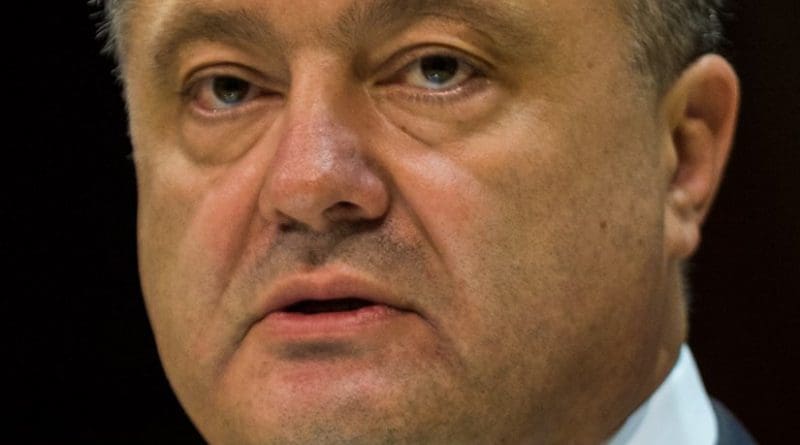Poroshenko-Bartholomew’s Plan To Eliminate UOC-MP: Risks And Success Factors – OpEd
By Nadia Bazuk
The guaranties of Ukraine’s autocephaly lie not in the legal agreements between Kyiv and Constantinople but in human psychology: the status of the attacker affects the fight’s outcome. Nevertheless, for a judge violence remains violence, and even the winner can be convicted.
On April 28, Razumkov Center published the results of a poll on religious and confessional preferences of Ukrainians in 2010-2018. According to the report, atheists make up only 5 per cent of the country’s population while 72 per cent claim to be faithful. The majority of Ukrainian citizens (67.3 per cent) belong to Orthodoxy and 9.4 per cent are Greek Catholics. The research confirmed that the level of religious commitment is one of the highest in former Soviet countries.
Unlike in most European states, the coexistence of major Ukrainian denominations can’t be called peaceful. The list of the largest religious organizations there includes three Orthodox Churches: the Ukrainian Orthodox Church of the Moscow Patriarchate (UOC-MP), the Ukrainian Orthodox Church of the Kyivan Patriarchate (UOC-KP), the Ukrainian Autocephalous Orthodox Church (UAOC) and the Ukrainian Greek Catholic Church (UGCC). Each of them fiercely competes with one another already engaged in direct confrontations. The antagonism between the Orthodox and Catholics roots deep in history. The conflict of the UOC-MP and the UOC-KP and UAOC, which separated from it, originates from the notorious heritage of the Soviet Empire.
It’s not surprising that president Poroshenko’s statements on the intention to unite the Ukrainian Orthodoxy in a Single United Church recognized by the Ecumenical Patriarch caused a massive public outcry. UOC-KP and UAOC hierarchs, the president and Ukrainian parliament have already appealed to Patriarch Bartholomew for the bestowal of independency to the single Ukrainian Church.
According to the authorities, such step should strengthen the unity of the country, which is in a deep social and political crisis. The autocephaly bestowed by the Patriarch is expected to undermine the influence of the UOC-MP and then will force it to sever the links to Russia and join Poroshenko’s project.
Meanwhile the plan is risky as if the UOC-MP refuses to dissolve, no unity will be reached, and Poroshenko will lose the votes of millions of faithful. Launching this project without additional guarantees would be too thoughtless in the president’s current tough political situation.
The only guaranty can be forcing the UOC-MP to cooperate. The clergy and faithful in East Ukraine would unlikely agree to voluntarily disrupt their ties with Russia as even decades-lasting agitation, violence and threats of the “Uniates” and “schismatics” haven’t induced them to leave the Moscow Patriarchate. Although, if not the schismatics stand against the UOC-MP laity but the Orthodox recognized by Constantinople, it can weaken their sense of rightness and will to defend their rights. And clashes for churches in Ukraine are quite a common thing.
In the early 1990s, the UGCC regained hundreds of its churches in the country’s western regions, taken from it after its elimination in 1946. The churches had already possessed established Orthodox communities, so the regions saw a wave of violence: the faithful beat and killed each other for a right to pray in churches. In those years, the UOC-KP emerged to oppose Moscow: it also had to seize its churches. After that, the UOC-KP tried to subdue the UAOC, which again led to violence. In the 2000s, the decade of the “all-out” war ended, and a fragile peace came. But the mutual contempt remained, and local conflicts between the UOC-MP and UOC-KP have never halted.
Sure, if Poroshenko’s plan is successfully implemented, more churches could be captured and clashes for them could become less bloody and violent. Now everything can be in a more democratic way because all that will be needed is to convert from one church to another. Although the legal aspect will remain unchanged. A seizure is a seizure. Violence is violence. If the majority of the UOC-MP remains loyal to Moscow, even deprived of all churches and driven “underground”, can the Ukrainian president consider it a victory?
Unfortunately, Ukraine is not a leading country in the matters of political culture and governance model. Its authorities have chosen an archaic approach – to solve religious arguments by the state’s direct interference. In medieval Europe this approach led to wars lasting for many years. Maybe Ukrainians have to go through this again to grow up at last.
*Nadia Bazuk is a freelance journalist from Ukraine with a MBA degree, self-employed retailer. Her writings have been published by ModernDiplomacy.eu, OCP Media Network, GolosPravdy.com, Union of Orthodox Journalists and other media.

